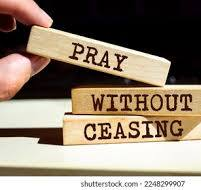Aristotle, one of the founders of Western philosophy, was exported to the West by Islam. This article is in 'Catholic News Now/Here' by a professor who founded the Asian Religious Peace Association and served as vice president, and is currently teaching peace studies at a Catholic University.Alfred North Whitehead summarized the European philosophical tradition as a series of footnotes on Plato. This means that today's Western philosophy and theology cannot be explained without Plato. This is an exaggeration. However, philosophers are receiving more attention as we enter an era where Eastern and Western thought communicate and human experience is given more importance.
Aristotle (384-322 BC) was born in Macedonia, grew up there, and came to Athens, Greece, to study. He studied under Plato, but he considered certain concepts or phenomena and sought philosophical completeness from a different perspective than Plato.
Plato tried to establish a theory about an ideal state that transcended reality. He wanted to make political reality closer to ideas, and he thought that was the role of philosophical reason. However, rather than pursuing a purely ideal state theory, Aristotle tried to find the best state among current states. This is because he believed that the ideal exists within the present.
Aristotle explained the relationship between the ideal and the real, the universal and the particular, as ‘substance’ and ‘attribute.’ For example, pencils, desks, and books are ‘substances’ that exist independently. However, yellow, big, and thick, such as a yellow pencil, a big desk, and a thick book, correspond to ‘attributes.’ Attributes do not exist beyond substance. The attribute of ‘yellow’ is in the yellow object, not in yellow itself. It always exists as a ‘attribute of substance’. In this way, all substances have attributes.
All beings have the attributes of quantity, quality, relation, where, when, position, having, acting, and being acted upon, combined with the independent basis of ‘substance’ (ousia). Anything that exists exists in a way that quality, quantity, position, and relation depend on substance.
There are also ‘essential attributes’ and ‘non-essential attributes’. Whether a horse is white or brown, big or small, is an attribute of a horse, but it is a ‘non-essential attribute’. However, the fact that a horse is a mammal with hooves corresponds to an ‘essential attribute’ of a horse. A horse can be anything, even if it is not big, small, or brown, but it cannot be a horse if it is not a mammal and does not have hooves. Socrates, Plato, and Aristotle all have the essential attribute of being human.
Aristotle clarifies the ‘essential attribute’ through the broader concept of ‘form’ (eidos) inherent in any being or phenomenon. ‘Form’ does not simply mean the external appearance of a being. Form is also the essence that makes an object into that object. For example, the ‘form’ of a person includes not only the ‘appearance of walking on two feet’ but also the essential definition of being a ‘rational animal.’
The combination of this form and matter is substance. ‘Form’ is given to the ‘material’ called ‘stone’ to become a specific ‘statue,’ a substance. ‘Form’ is something like, “What is that statue?” When we ask, “What is?”, it is the same as the fundamental principle that defines the “what it is.” The shape of a statue is composed of specific features such as the size, color, and location of the statue, and those features are the attributes.
The shape combines with matter to become a substance. The shape is not separated from the matter. The substance is also not separated from the attributes. It always exists as the “shape of matter” and as the “attribute of substance.” This perspective was later usefully utilized in Christian theology when connecting God and humans, God and creatures, etc., when explaining the Bible, “Let us make man in our image, in our likeness.” (Genesis 1:26)
In this context, Aristotle believed that universals also exist within human senses. This contrasts to Plato, who viewed universals (ideas) as existing independently of human perception. He also viewed the value of justice as not existing independently but as existing within society and humans. He believed that humans can distinguish and recognize universal forms among things with the help of reason. In this way, Aristotle brought down ideas to the level of things. This led to the logic that universals are universals within particulars.
Later, the logic that the universal God is also confirmed within the particular human being was accepted, greatly influencing the relationship between God and humans in theology. For example, unlike dualism, which states that “the finite cannot fill the infinite” (Augustine) or “the finite cannot contain the infinite” (John Calvin), Aristotle’s philosophy was inherited as a monistic worldview, which states that “the finite can contain the infinite” God has never been separated from creation. The interpretation that infinite God and finite humans cannot but be mutually related is gaining more persuasiveness in theological circles.
Aristotle also presented the concept of the ‘first cause.’ He believed that whatever moves is moved by something else that moves it, and that if we trace this causal relationship, we will reach the first cause that moves something else without moving itself. The first cause is the fundamental cause of all actions, the unmoving prime mover, and ‘pure thought’ or ‘thought of thought’ with no object of thought other than itself.
Aristotle continued the first cause that underlies all beings with the grammatical concept of hypokeimenon. Translated into Latin as ‘subjectum, subject’, it was interpreted as the subject of all judgments or grammatical subjects indicated by a predicate, but cannot be a predicate itself.
Later, Thomas Aquinas interpreted Aristotle’s main concepts, especially the ‘first cause’, as the creator of all things, that is, God. He reinterpreted hypokeimenon as ‘substantia’, meaning a self-existent being that does not need anything else to define itself. Although it became a different concept from Aristotle’s ‘substance’ because the times were different, Aristotle’s philosophy became the key words that developed philosophy and theology from the Middle Ages to today.
Aristotle was revived by Islam
Aristotle laid the foundation for Western philosophy, but he was not publicly recognized as a leading philosopher in Greece at the time. The main reason was that he was from Macedonia and was the teacher of Alexander, the king of Macedonia, who ruled Greece.
When the entire Mediterranean coast, including Greece, came under Macedonian rule, Greek philosophers were wary of Aristotle, who was from Macedonia. However, since Aristotle was also the teacher of Alexander, who ruled Greece at the time, they could not bring themselves to touch him. Then, after Alexander died, he was accused by the priests of Athens, Greece. The justification they gave was that Aristotle's writings commemorating the death of Hermias, his friend and wife's brother, were blasphemous. In this way, he was pushed out by the mainstream Greek thinkers of his time due to political and nationalistic sentiments.
It was Islamic thinkers who recognized Aristotle as an outstanding philosopher. From the 8th to the 10th century AD, Arabs, Persians, and other Islamic countries actively translated and studied Greek philosophical texts in Arabic, including Aristotle’s works. They sought to complete Islamic theology by annotating Aristotle’s significant works. In particular, the Spanish Islamic philosopher Ibn Rushd (1126-98) studied Aristotle’s works in depth and left in-depth annotations on them. These were then introduced to Western Europe. Thomas Aquinas was shocked by the Aristotelian philosophy transmitted through Spain and used it to refine theology, such as establishing the relationship between God and humans. In this way, Aristotle’s philosophy entered the center of Western philosophy and theology.
In the history of Western philosophy, the relationship between Aristotle and Islam is often omitted or passed over. This is similar to how ancient Japan initially learned Buddhism from Baekje. Still, Japanese textbooks and Buddhist history literature simply deal with that part and describe much more about Indian and Chinese Buddhism. However, just as today’s Japanese Buddhism would not have existed without Baekje’s Buddhism, which was introduced to Japan via Korea in the 6th century CE, with various sects following in subsequent centuries via China.
We should not overlook the fact that Aristotle’s philosophy was revived in Europe through Islam. Through Aristotle's philosophy, we can dramatically see that Islam has preserved and passed down the academic discipline that can become the intellectual heritage of all mankind through translation and exchange rather than remaining in a specific civilization.






